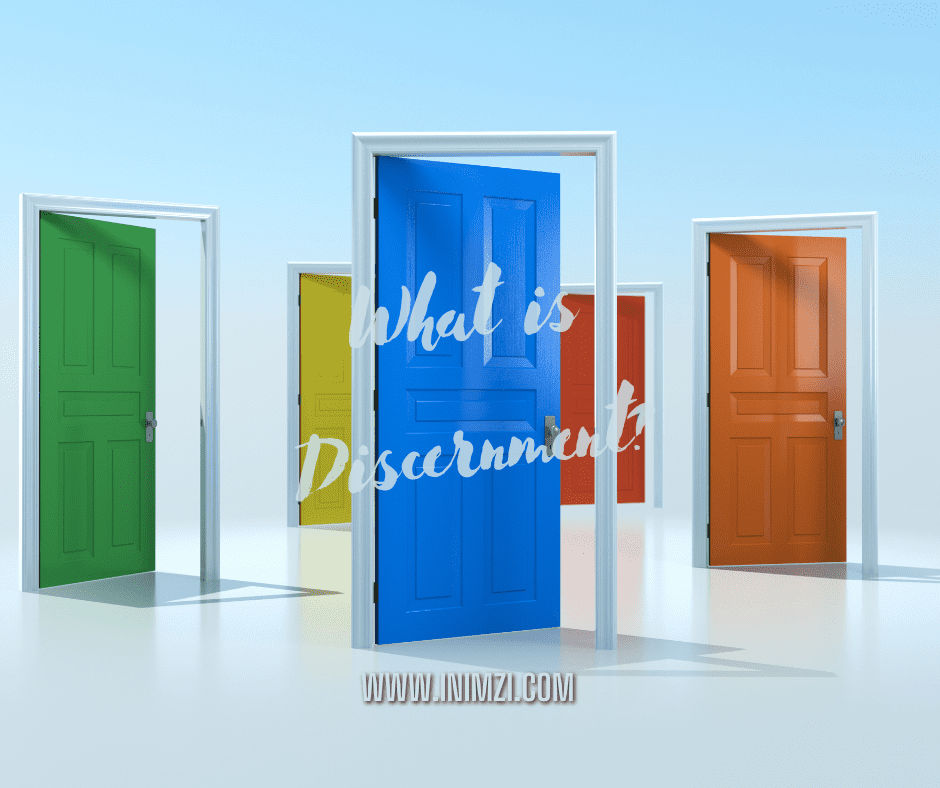Making Wise Decisions in a Complex World
In the journey of life, we are constantly faced with a myriad of choices and decisions. From simple everyday choices like what to have for breakfast to more complex ones such as choosing a career path or a life partner, discernment plays a crucial role.
Discernment, the ability to judge and perceive with clarity and wisdom, is a skill that empowers individuals to make well-informed decisions and navigate the complexities of life. It is the ability to distinguish between truth and falsehood, right and wrong, good and bad. Discernment is also the ability to see through deception and to avoid making costly mistakes.
In today’s complex world, discernment is more important than ever before. We are constantly bombarded with information from a variety of sources, and it can be difficult to know what to believe and what to do. Discernment can help us to filter out the noise and make wise decisions about our lives.
The Nature of Discernment:
Discernment is more than just making choices; it’s the art of making thoughtful, informed decisions. It involves the following key elements:
Perception:
Discernment begins with perception. It requires a keen awareness of the nuances and details of a situation or a choice.
This often involves looking beyond the surface and understanding the deeper layers of meaning and significance.
Judgment:
Judgment in discernment is not about passing quick or biased decisions. It’s about carefully weighing the options and considering their implications.
It involves the ability to differentiate between what is beneficial and what may be detrimental.
Wisdom:
Wisdom is a critical component of discernment. It’s about drawing from one’s knowledge, experience, and intuition to make sound decisions.
Wisdom helps in anticipating the consequences of one’s choices and assessing the long-term impact.
How to develop discernment
The good news is that discernment is a skill that can be cultivated and improved over time. Here are some tips:
Seek out wise counsel from others.
Talk to people who you trust and respect, and get their input on your decisions.
Self-Reflection.
Self-awareness is the first step in discernment. Understand your values, desires, and goals to make decisions that align with your true self.
Patience.
Don’t make rash decisions. Take the time to weigh the pros and cons of each option before you make a choice.
Be open to changing your mind.
If you are presented with new information, be willing to reconsider your decision.
Personal experience and reflection.
As we go through life, we encounter many different situations that teach us how to make good judgments. We learn from our successes and our failures, and we develop an intuition about what is right and wrong.
Relationships with others.
We can also learn discernment by observing and interacting with other people. We can see how they make decisions, and we can learn from their mistakes and successes.
Information Gathering.
Seek out relevant information and perspectives. The more you know, the better you can discern between choices.
Education and training.
There are many courses and programs that can teach us about discernment. These programs can help us to develop our critical thinking skills and to learn about different ethical frameworks.
Spiritual practice.
Many spiritual traditions teach discernment as a way of developing moral wisdom and compassion. Spiritual practices such as meditation and prayer can help us to connect with our inner wisdom and to develop our intuition.
Here are some specific examples of how to use discernment in different areas of your life:
When choosing a career.
Consider your skills, interests, and values when choosing a career path. Pray for guidance and seek out wise counsel from others.
When choosing a spouse.
Look for someone who shares your values and who will support you in your spiritual journey. Be patient and don’t rush into a decision.
When making financial decisions.
Do your research and get professional advice before making any major financial decisions.
When voting.
Learn about the candidates and their positions on the issues. Vote for the candidate who you believe will best represent your interests and values.
When using social media.
Be critical of the information you see on social media. Don’t believe everything you read.
Benefits of discernment
Discernment has many benefits, including:
Better decision-making:
Discernment can help us to make wiser decisions in all areas of our lives. When individuals practice discernment, they are more likely to make choices that align with their values and goals.
This results in better decision-making and a higher chance of achieving personal and professional success.
Avoiding Pitfalls:
Discernment helps people steer clear of hasty or ill-informed decisions, reducing the chances of regret and costly mistakes.
It acts as a shield against impulsive choices that can lead to negative outcomes.
Greater peace of mind:
When we know that we are making wise decisions, we can experience greater peace of mind.
Stronger relationships:
In personal relationships, discernment plays a crucial role in choosing the right partners and making thoughtful compromises. It helps in understanding others’ intentions and motivations, fostering healthier connections.
Discernment can help us to build stronger relationships with others by enabling us to communicate more effectively and to resolve conflict peacefully.
A more fulfilling life:
Discernment can help us to live a more fulfilling life by enabling us to make choices that are aligned with our values and goals.
Conclusion
Discernment is a valuable tool in life’s toolbox, helping individuals make choices that are aligned with their values and aspirations. It’s not about being perfect but about making decisions with a clear mind and a sense of purpose. By developing the skill of discernment, we can navigate life’s complexities more effectively and with greater confidence. Remember, discernment is not about avoiding mistakes altogether, but about minimizing them and making more conscious, wise choices.
